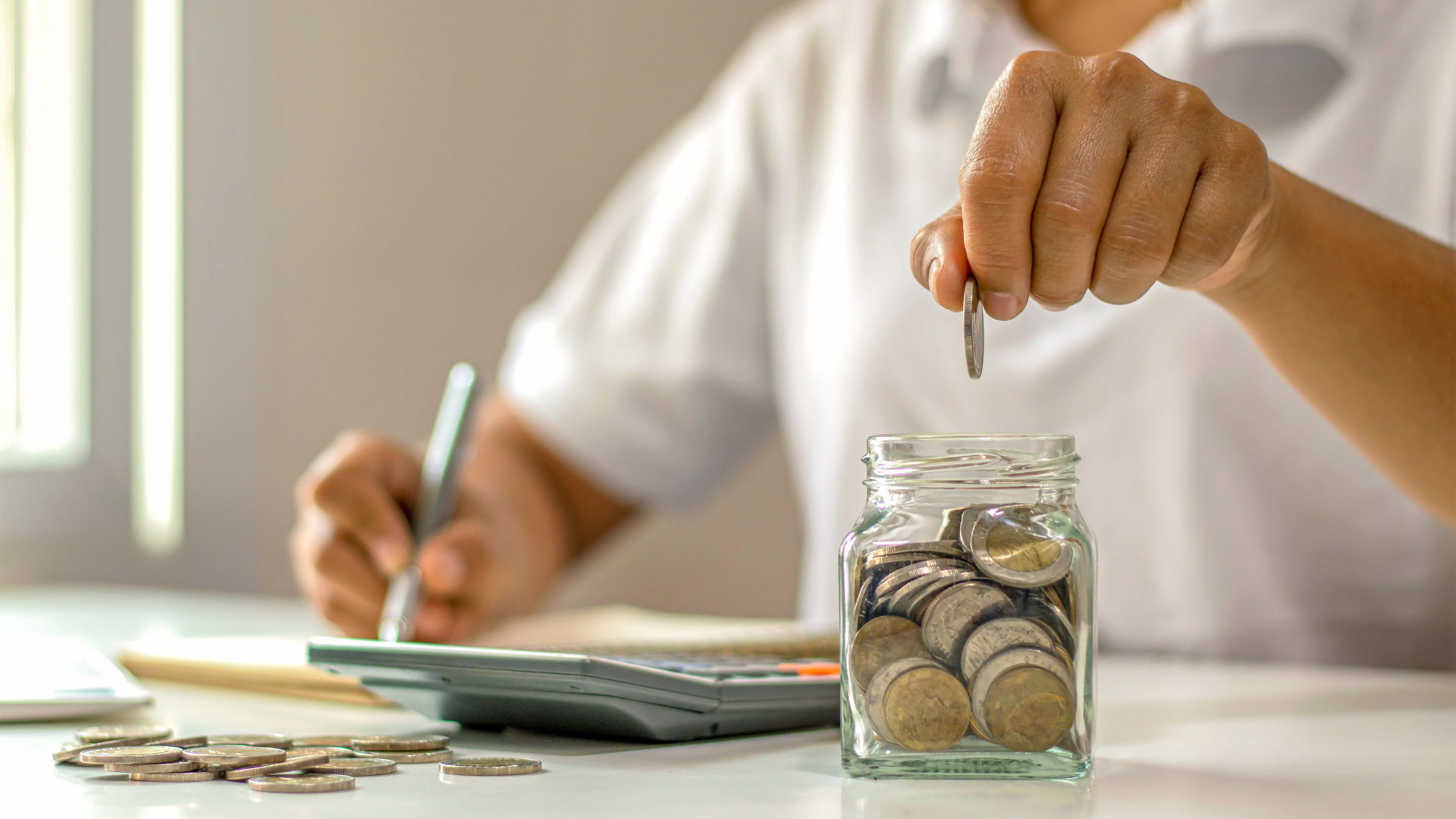Easy Money-Saving Tips: Best Ways to Save Money Today

Saving money is not just a trend; it’s a key skill for your financial future. By using smart money-saving tips, you can better manage your finances and reach your goals. It’s important to set clear, specific goals.
In this article, you will learn tips that can change your financial habits and help you save money. Whether you want to build an emergency fund, save for retirement, or cut down on monthly expenses, there are practical strategies to help. You’ll find that following expert advice can make a big difference in your daily life.
Key Takeaways
- Limit your spending on essential expenses to a reasonable portion of your take-home pay.
- Gradually build an emergency fund to cover several months of essential expenses.
- Set aside a portion of your monthly income for unexpected costs.
- Take advantage of rewards programs to receive discounts on regular purchases.
- Implement automatic withdrawals from your paycheck to boost your short-term savings.
Effective Ways to Save Money
Using effective strategies can greatly improve your money management skills. Start by setting a savings goal. This sets the stage for your saving efforts. Having a specific goal motivates you and boosts your chances of success.
Set a Savings Goal
Set both short-term and long-term goals to maximize your savings. Begin with a goal like an emergency fund of $500. These goals motivate you and guide your financial planning. Saving a set amount each week, like $20, helps build good saving habits. Use windfalls like tax refunds to add extra money to your goals.
Create a Budget
Creating a robust budget is crucial for reaching your savings goals. Analyzing your past spending helps you understand how your money is distributed, which can inform your financial decisions. Employing methods like the envelope budgeting system can effectively curb excessive spending.
Interestingly, while over half of Americans (54%) consider debt a normal part of life, with a thoughtful budget, you can challenge this norm. Setting up a budget allows you to spend wisely and improve your overall financial management.
Track Your Expenses
Tracking your expenses regularly is crucial for a better budget. By categorizing your spending, you can spot areas for improvement. This practice improves your money management and keeps your savings goal in sight.
Automate Your Savings
Automating your savings makes it easier. Set up direct deposits to save money automatically. Studies show automated savings lead to better financial goals. Saving a portion of your fixed income grows your wealth without constant effort.
| Strategy | Description | Benefits |
| Set a Savings Goal | Define specific, measurable objectives for savings. | Motivates you and increases the likelihood of success. |
| Create a Budget | Establish a plan for allocating your income. | Prevents overspending and directs funds effectively. |
| Track Your Expenses | Monitor and categorize your spending habits. | Enhances awareness and promotes better financial decisions. |
| Automate Your Savings | Utilize direct deposits for consistent savings. | Facilitates passive wealth growth and discipline. |
What Is the Trick to Saving Money?
Learning how to save money can make a big difference in your finances. Using smart tools and habits can help cut down on spending. For example, using cash-back apps and coupons can save you money right away.
Utilize Cash-Back Apps and Coupons
Apps like Rakuten and Ibotta can give you cash back on what you buy. Using these apps with coupons can save you even more on groceries and daily items. Saving money consistently with these tools can add up over time.
Meal Plan and Pack Lunches
On average, people spend over $3,000 a year eating out. Meal planning is key to saving money. It helps you avoid food waste and spend less.
Packing your lunch instead can save you money. It lets you put that money towards savings or other goals. Cooking at home and using food wisely helps keep costs down.
Cut Unnecessary Subscriptions
Checking your monthly subscriptions can help you find where you’re wasting money. Look at what services you really use and enjoy. Many people pay for subscriptions they don’t need anymore; over 30% of subscriptions are going unused each month.
Canceling these can free up money for savings or important bills. It’s a step towards better financial health.
Smart Spending Habits to Implement
Smart spending habits are key to better financial health. Knowing how your daily choices affect your money is important. Here are tips to improve your spending, leading to more savings and peace of mind.
Avoid Impulse Purchases
Impulse purchases can disrupt your budget. Try waiting 24 hours before buying something you don’t need. This helps you decide if it’s worth the money and if it adds value to your life. Without this pause, you might spend too much and save less.
Buy Generic Products
Choosing generic over brand-name can save a lot. These products are often just as good but cheaper. For example, buying generic food or cleaning supplies can help you save money for bigger things.
Reduce Monthly Bills
Lowering your monthly bills can save a lot. Look at your bills for internet, phone, and utilities. You might find cheaper plans or negotiate better rates. For instance, saving $100 a month and putting it in a savings account earning 5% interest could grow to over $15,000 in ten years. Cutting costs and saving more leads to better financial health.
| Smart Spending Habits | Potential Savings |
| Avoid Impulse Purchases | Varies; can save hundreds annually |
| Buy Generic Products | 10-30% per product |
| Reduce Monthly Bills | Up to $1,200 annually |
By adopting these smart spending habits, you can make your money work for you. Focus on spending wisely to achieve a more secure and fulfilling financial future.
Conclusion
Saving money is more than just a task. It’s a journey that needs planning and practice. By using the best ways to save, you can reach your goals and secure your future. Every small choice, like cutting subscriptions or automating savings, matters a lot.
Good financial planning comes from saving habits. Living simply and staying positive can change how you see money. It’s not just about saving. It’s about a healthier relationship with your wealth. You’re not alone. With determination and the right strategies, you can achieve financial stability and peace of mind.
Read More
If you’re ready to take your savings and financial planning to the next level, explore these articles for actionable strategies and insights:
- How To Save 10K In 6 Months
- How To Save 3000 In 3 Months
- How To Save 10K In 100 Days
- How To Save 2000 In 3 Months
Keep building your financial knowledge and uncover the best methods to secure your future. Each step you take brings you closer to achieving your goals.
FAQ
What are some effective money-saving tips for a beginner saver?
For a beginner saver, some effective money-saving tips include creating a savings plan, setting a goal to save a specific amount, and using automatic transfers from your checking account to your savings account. This way, you’ll save without even thinking about it.
How can I start saving money if I’m living paycheck to paycheck?
If you’re living paycheck to paycheck, start saving by looking for ways to reduce your expenses. This can include cutting out unnecessary subscriptions, using coupons for grocery shopping, and finding ways to spend less on daily essentials.
What is the best way to set up automatic transfers for saving?
To set up automatic transfers, you can use your online banking or mobile banking app. Simply link your checking account to your savings account and schedule regular transfers to help you manage your money and reach your savings goals.
How can a savings plan help me reach my financial goals?
A savings plan helps you set a clear target for how much you want to save and by when. By outlining specific financial goals, you can stay motivated and create a structured approach to saving money effectively.
What are some ideas to save money on grocery shopping?
Some ideas to save money on grocery shopping include making a shopping list before you go, using coupons, purchasing store brands, and planning meals around sales. These strategies can help you take full advantage of discounts and save your money.
How can I save my spare change effectively?
You can save your spare change by using a designated jar or container at home. Alternatively, consider opening a money market account that allows you to deposit your spare change automatically through mobile banking apps designed for this purpose.
What role does online banking play in money-saving strategies?
Online banking plays a significant role in money-saving strategies as it allows you to easily track your spending, set up automatic transfers, and manage your finances from anywhere. This convenience can help you stay on top of your savings plan.
What should I consider if I want to save for a payment on a home?
If you want to save for a payment on a home, consider setting a specific savings goal and timeframe. Create a dedicated savings account, set up automatic transfers, and look for ways to increase your income or cut expenses to boost your savings.






